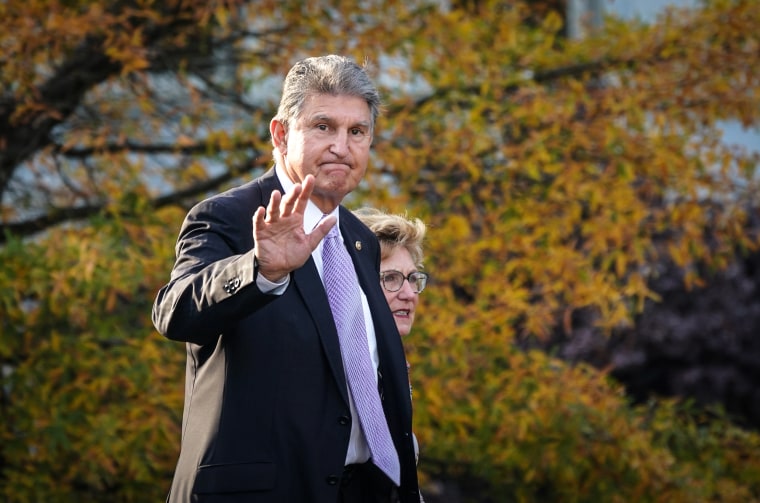WASHINGTON — The White House is putting a spotlight on federal efforts to help coal communities and parts of the U.S. that depend economically on the energy industry, with the Biden administration working to address concerns in those areas as it shifts the U.S. away from fossil fuels.
Leaders from energy companies, major unions and nonprofits took part Wednesday in a meeting at the White House with Energy Secretary Jennifer Granholm, White House National Climate Advisor Gina McCarthy, Commerce Secretary Gina Raimondo and Brian Deese, who runs the National Economic Council. The White House said the discussion centered on “new private sector and philanthropic investments that have been spurred by the administration’s efforts to support economic revitalization in energy communities.”
The session comes as the Biden administration is working intensely to woo support from Sen. Joe Manchin, D-W.Va., for President Joe Biden’s “Build Back Better” domestic spending bill, which contains more than half a billion dollars in federal investments to address climate change and hasten the transition away from coal, oil and other energy forms that contribute to global warming.
Manchin, whose state of West Virginia is heavily reliant on coal extraction, has repeatedly pushed back on the Biden administration’s hopes of quickly phasing out coal use and has warned of devastating economic impacts to Appalachia and other parts of the U.S. if the coal industry shutters.
Some Democratic political strategists have also cited the party’s past neglect of deep economic concerns in energy-reliant parts of the country as a key reason for Democrats’ eroding support among white, working-class voters.
The Biden administration has sought to pre-empt those concerns through federal efforts aimed at a “just transition” that would smooth the path for energy-dependent communities to find new, more sustainable sources of jobs and prosperity. Still, Manchin has yet to commit to voting for the $1.7 trillion package, raising the growing prospect that Senate Democrats will miss their self-imposed end-of-year deadline to pass the bill.
Manchin’s wife, Gayle Manchin, participated in Wednesday’s White House meeting in her role as federal co-chair of the Appalachian Regional Commission. Biden nominated her to that role in March.
At the White House meeting, officials offered details about $300 million from Covid stimulus funds heading to energy-dependent parts of the U.S. as part of the U.S. Economic Development Administration’s Coal Communities Commitment program, the White House said. Funding from the $1.2 trillion bipartisan infrastructure law is also being directed toward coal communities, officials said in an end-of-year report.
The United Mine Workers of America and the AFL-CIO were among the major labor groups at Wednesday’s meeting, joining leaders from Louisiana’s Xavier University who are building a “green hydrogen energy cluster” using federal funds. The White House said communities in West Virginia, Pennsylvania, New Mexico, North Carolina and Wyoming were also represented.

